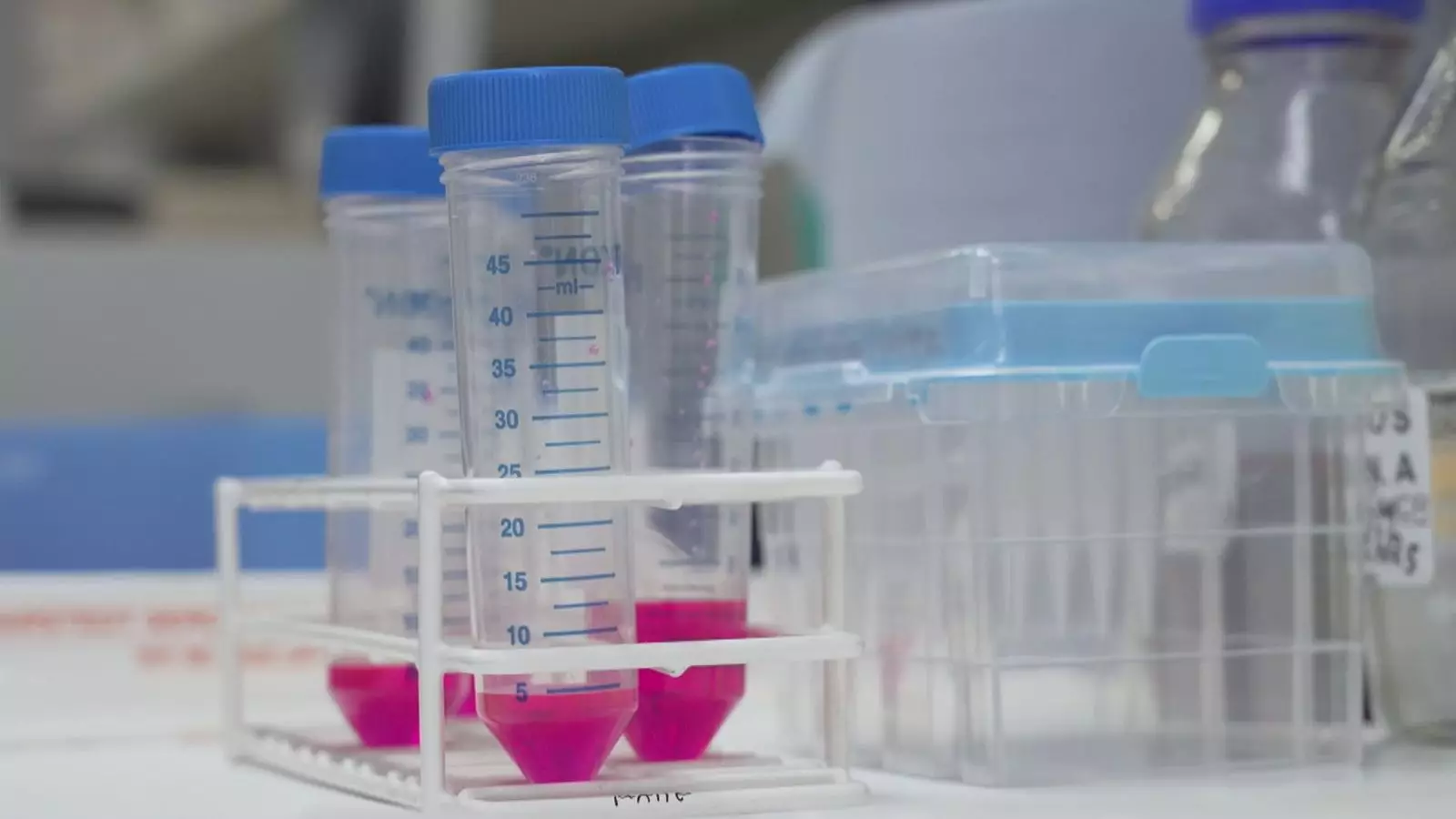In a remarkable leap forward in oncology, the NHS is rolling out capivasertib, a drug that has swiftly gained praise from patients as a “game-changer” in the fight against breast cancer. Patients and physicians alike are enthusiastic about this groundbreaking treatment that promises to augment existing therapies and prolong lives with significantly reduced side effects. While the complexities of cancer treatment often leave patients feeling demoralized, the introduction of capivasertib brings a fresh wave of optimism, signaling that we may indeed be on the cusp of a new era in cancer care.
Elen Hughes, a patient who has been on capivasertib since February, encapsulates this transformative experience perfectly. Her journey from despair to hope is not merely anecdotal; it emphasizes the profound impact that effective treatment can have on a person’s psyche and quality of life. “I don’t see myself as a dying person, but as someone thriving,” she states, a sentiment that strikes a chord with many who face similar battles. It is imperative to recognize that Elen’s story represents not just her personal victory, but also a collective yearning for innovation and compassion in medical treatment.
Transforming Lives, Not Just Numbers
The narrative surrounding capivasertib invites us to reconsider how we evaluate cancer treatments. Traditional metrics focus heavily on survival statistics, often failing to encompass the nuanced emotional and psychological aspects of living with cancer. Mrs. Hughes astutely points out a crucial truth: “In cancer, we can do a lot in six months.” This notion of quality time gained, rather than sheer, cold statistics, transforms the conversation around cancer rhetoric. The focus must shift from merely extending life to enriching the experience of life itself.
The drug’s ability to delay the need for harsh treatments like chemotherapy means that patients may be able to live their lives more fully while battling their illness. This is where the impact of capivasertib cannot be overstated; it proffers hope—the vital ingredient that’s often in short supply in cancer care. By alleviating side effects and preserving a better quality of life, this treatment allows patients to create lasting memories, such as attending their children’s weddings and milestones, which is an experience that cannot be quantified.
The Science Behind the Hope
From a scientific perspective, the approval of capivasertib after two decades of meticulous research marks a landmark achievement for British science. The collaboration between various research teams, as highlighted by Professor Nicholas Turner, is noteworthy. Identifying patients with specific genetic markers offers a tangible pathway for personalized medicine, which has become essential in modern oncology. The professor’s call for urgent genetic testing serves as a reminder that early identification of suitable candidates maximizes the drug’s potential benefits—a strategy that could herald a change in standard practice.
Within the context of advanced breast cancer—where PIK3CA, AKT1, and PTEN mutations are prevalent—the careful selection of eligible patients is key to ensuring that innovations like capivasertib reach those who need them most. The message is clear: innovative thinking, coupled with rigorous scientific research, can deliver promising solutions to complex problems.
A Call for Equity in Access
While the NHS’s rollout of capivasertib is undoubtedly a step forward, it is also imperative to emphasize the importance of equitable access to this revolutionary drug. The socio-economic disparities that exist in healthcare must be addressed to ensure that all patients have the opportunity to benefit from such advancements. It is not just unacceptable, but a moral failing, to allow financial barriers to dictate who gets access to potentially life-saving treatments.
If we herald capivasertib as a groundbreaking treatment, we must also advocate for a system that dismantles these barriers, enabling every patient—regardless of their background—to have the prospect of thriving lives amid the struggles of cancer. As we embrace the potential of such treatments, we must ask ourselves: How do we ensure that every individual has the chance to experience this hope, rather than just a fortunate few?


Leave a Reply